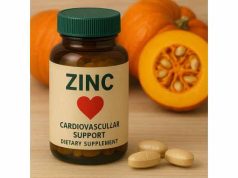
Fenugreek is garnering growing attention in the natural wellness community for its potential to strengthen cardiovascular well-being. This aromatic herb, renowned for its culinary uses, may help reduce common risk factors tied to heart disease, support healthy lipid levels, and improve overall circulatory function. Used in Ayurveda and various traditional systems for centuries, fenugreek now emerges as a modern ally for those focused on comprehensive cardiovascular care. Below, we explore the science, usage guidelines, and relevant safety considerations surrounding Fenugreek for Heart Health, providing you with a well-rounded view of how this plant might bolster your cardiovascular resilience.
Table of Contents
- Comprehensive Look at Fenugreek for Heart Vitality
- Mechanisms and Action of Fenugreek
- Clinical Support for Cardiovascular Strength with Fenugreek
- Using Fenugreek Responsibly: Dosage, Methods, and Safety
- Frequently Asked Questions
- References and Sources
Comprehensive Look at Fenugreek for Heart Vitality
Fenugreek (Trigonella foenum-graecum) is a leguminous plant native to parts of Asia and the Mediterranean region. It has a long history of both culinary and medicinal applications, with recorded usage dating back to ancient Egyptian, Greco-Roman, and Ayurvedic texts. In traditional practice, fenugreek seeds and leaves have often been utilized for digestive aid, glucose metabolism support, and enhancing overall vitality. Modern research now reveals that fenugreek may also contribute to robust cardiovascular health, thanks in large part to its diverse biochemical compounds.
A Snapshot of Fenugreek’s Nutritional Profile
- Protein and Amino Acids: Fenugreek seeds contain a notable amount of protein, featuring amino acids such as lysine and tryptophan.
- Fiber: The seeds also offer soluble fiber—most notably, galactomannan—which may help manage cholesterol and blood sugar levels.
- Saponins: Plant-based compounds that might aid in lipid regulation.
- Polyphenols: Antioxidants that could help mitigate oxidative stress within blood vessels and other tissues.
Historically, fenugreek seeds have been used as a spice to add a unique, slightly bitter and nutty taste to dishes. Beyond flavor, many cultures embraced fenugreek’s potential for aiding respiratory issues, boosting lactation, and supporting balanced blood sugar. Today, standardized fenugreek extracts, powders, and capsules are widely available, making the plant’s beneficial properties accessible to a global audience.
Why Fenugreek for Heart Health?
Interest in fenugreek has surged due to studies suggesting it might favorably influence cardiovascular markers. Its soluble fiber can bind to dietary cholesterol in the digestive tract, promoting healthier lipid profiles. Saponins and other phytochemicals in the seeds are linked to anti-inflammatory and antioxidant effects, both critical factors in safeguarding arterial integrity and preventing plaque formation. Additionally, fenugreek’s ability to assist with balanced blood sugar and weight management can indirectly benefit the heart, as elevated glucose and obesity both pose risks to cardiovascular function.
Traditional Insights Meet Modern Science
Although fenugreek’s heart-friendly potential is a comparatively recent topic in scientific research, the plant’s historical prominence in herbal medicine provides a strong foundation. Ancient healers frequently relied on fenugreek to manage fevers, coughs, and malaise, conditions that can be exacerbated by underlying inflammation. The synergy between fenugreek’s centuries-old medicinal use and new scientific inquiries underscores the herb’s relevance in preventive healthcare—especially in relation to heart health.
Culinary and Nutritional Uses
One simple way to incorporate fenugreek into everyday life is through cooking. Ground fenugreek seeds can be added to curries, soups, and stews for a distinctive flavor. Fenugreek leaves, known as methi in certain parts of Asia, are often cooked as greens or used in flatbreads. By weaving fenugreek into regular meals, individuals not only sample a unique taste but also potentially gain incremental cardiovascular benefits over time.
Key Takeaways
- Multifaceted Health Ally: Fenugreek is celebrated for its broad array of nutrients and bioactive compounds.
- Supports Lipid and Glucose Management: The seeds’ fiber content and various phytochemicals may aid cholesterol balance and healthy blood sugar levels, both of which significantly influence heart health.
- Historically Respected, Modernly Explored: Long-standing use in traditional medicine informs new scientific explorations, validating its potential for diverse applications, including cardiovascular support.
Fenugreek for Heart Health is thus a promising avenue for individuals looking to optimize their cardiovascular well-being naturally. In the next section, we explore exactly how fenugreek’s active components function within the body to promote balanced blood flow and protect blood vessels.
Mechanisms and Action of Fenugreek
When it comes to understanding fenugreek’s cardiovascular promise, unraveling its molecular interactions is key. Like many herbal remedies, fenugreek exerts its effects through a complex interplay of phytochemicals that work in concert. As modern science continues to illuminate these pathways, we gain a clearer picture of how fenugreek helps cardiovascular function and fosters a heart-protective environment.
Fiber and Cholesterol Binding
A standout feature in fenugreek seeds is their content of soluble fiber, particularly galactomannan. Soluble fibers, when ingested, form a gel-like substance in the digestive tract. This gel can bind with cholesterol-rich bile acids, encouraging their excretion. Such a process helps reduce the reabsorption of cholesterol, leading to potentially lower blood lipid levels. Over time, healthier lipid profiles contribute to decreased plaque buildup in artery walls.
Additional Benefits of Soluble Fiber:
- Supports satiety, aiding weight management, which is crucial for heart health.
- Stabilizes blood sugar by slowing carbohydrate absorption.
- Helps nourish beneficial gut bacteria, indirectly influencing metabolic and inflammatory states.
Saponins for Lipid Modulation
Fenugreek seeds also contain steroidal saponins—naturally occurring plant compounds thought to play a role in lowering LDL (“bad”) cholesterol levels. These saponins may limit intestinal cholesterol absorption and disrupt recirculation of certain bile salts.
- Mechanistic Insight: Saponins form insoluble complexes with cholesterol molecules, reducing their uptake in the bloodstream.
- Impact on Cardiac Health: High LDL levels can accelerate atherosclerosis, so reducing LDL can lessen the risk of plaque formation and coronary artery complications.
Polyphenols and Antioxidant Defense
Oxidative stress emerges when free radicals accumulate in the body, damaging cells and tissues—particularly the sensitive lining of blood vessels. Fenugreek contains an array of polyphenolic compounds, which serve as antioxidants by neutralizing these reactive molecules. By limiting oxidative damage in arteries, fenugreek may foster a less inflammatory and more stable cardiovascular environment.
- Protection of Endothelial Cells: The inner lining of blood vessels (the endothelium) remains crucial for modulating blood pressure and clotting. Healthier endothelial cells can mean lower inflammation and smoother blood flow.
- Influence on HDL (“Good”) Cholesterol: Some antioxidants also help preserve HDL stability, reinforcing its role in transporting excess cholesterol away from arterial walls.
Regulation of Blood Sugar and Weight
Although fenugreek is often lauded for blood sugar management, this advantage indirectly affects cardiac health. Persistent hyperglycemia (elevated blood sugar) can harm blood vessels and amplify the development of plaques, while weight gain increases strain on the heart and fosters insulin resistance. By promoting balanced blood glucose levels and assisting in weight regulation, fenugreek addresses two major risk factors for cardiovascular disease.
- Insulin Sensitivity: Fenugreek seeds may augment insulin receptor function, allowing cells to absorb glucose more efficiently.
- Reduced Cravings: Soluble fiber, combined with fenugreek’s distinctive flavor, may help curb appetite, providing a subtle boost in weight management efforts.
Anti-Inflammatory Potential
Chronic inflammation is an underlying factor in most heart conditions, including atherosclerosis and hypertension. While the precise anti-inflammatory mechanisms in fenugreek are still undergoing study, compounds like diosgenin and trigonelline found in fenugreek may help downregulate pro-inflammatory pathways.
- C-Reactive Protein (CRP) Levels: Some research suggests fenugreek supplementation might reduce CRP, an inflammatory marker correlated with heart disease risk.
- Interplay with Immune Cells: By tempering overactive immune responses, fenugreek’s constituents may maintain a calmer, more balanced environment in blood vessels.
Synergistic Dynamics
Fenugreek’s cardiovascular benefits likely stem not from one single component but from a synergy among fibers, saponins, polyphenols, and other phytochemicals. This synergy shapes a multifaceted approach: addressing lipid profiles, mitigating inflammation, controlling oxidative stress, and supporting both blood sugar and weight balance. Each factor can influence arterial health, making fenugreek’s broad-spectrum actions especially noteworthy for individuals at risk for cardiovascular issues.
With these foundational insights in mind, the next section will delve into the real-world data. We’ll examine scientific studies and trials that shed light on Fenugreek Benefits for Heart Health and how they might translate into day-to-day preventive strategies.
Clinical Support for Cardiovascular Strength with Fenugreek
While traditional medical knowledge long recognized fenugreek’s usefulness for a range of ailments, contemporary research has built upon this legacy by focusing on the herb’s impact on heart health. Studies, both in laboratory and human settings, investigate fenugreek’s effect on cholesterol, blood pressure, and other parameters that influence long-term cardiovascular well-being.
1. Lipid Profile Improvements
Cholesterol management is a top priority for many who aim to prevent heart disease. Several human trials reveal that fenugreek supplementation can help reduce overall cholesterol and LDL levels, possibly due to the mechanisms discussed earlier (fiber binding and saponin interactions).
- Study Example: In a small study, participants with mildly elevated cholesterol were given a fenugreek seed powder each day. By the end of the intervention, many individuals noted lower total cholesterol and LDL while experiencing minimal adverse effects.
- Practical Application: These findings suggest that fenugreek, when used alongside a balanced diet, might help those with borderline high cholesterol reach healthier levels.
2. Blood Pressure Regulation
Though fenugreek’s direct effect on blood pressure is less extensively researched than its effect on lipids or glucose, there are indications that controlling inflammation, managing weight, and improving insulin sensitivity may collectively help maintain normal blood pressure levels. Certain compounds within fenugreek may also support endothelial function, indirectly influencing vascular tone.
- Indirect Mechanisms:
- Weight Control: Excess weight is a risk factor for hypertension. Fenugreek’s support in appetite control can help reduce body weight, which in turn can benefit blood pressure.
- Reduced Inflammation: Chronic inflammation can stiffen arteries. Fenugreek’s anti-inflammatory attributes could help preserve arterial flexibility.
3. Enhancing Glucose Control for a Healthier Heart
One of fenugreek’s most common uses is to assist in blood sugar regulation. Even moderately elevated glucose levels can accelerate vascular damage and increase heart disease risk.
- Study Outcomes: A number of trials evaluating fenugreek in individuals with prediabetes or type 2 diabetes found a positive trend in fasting blood sugar and HbA1c readings. Better glycemic control is strongly associated with a lowered risk of diabetic complications, including heart disease.
- Metabolic Syndrome Considerations: Components of metabolic syndrome—high blood pressure, abnormal cholesterol, elevated blood sugar, and obesity—often overlap. Fenugreek’s capacity to tackle several of these simultaneously may make it particularly valuable.
4. Potential Impact on Triglycerides
Triglycerides, a type of blood fat, sometimes receive less attention than LDL, but high triglyceride levels are a key factor in cardiovascular health. Some research points to fenugreek’s ability to curb triglyceride increases, presumably by promoting healthier metabolism and reducing the ingestion-to-circulation conversion of fats.
- Mechanistic Rationale: The combination of fenugreek’s fiber content, saponins, and improved insulin sensitivity likely translates to lower triglyceride production and improved fat utilization in the liver.
- Lifestyle Synergy: Engaging in regular physical activity, reducing refined sugars, and incorporating fenugreek into the diet or supplement routine may amplify benefits in managing triglycerides.
5. Anti-Inflammatory and Antioxidant Correlates
Several lab-based experiments on fenugreek extracts highlight its antioxidant potency and possible immunomodulatory effects. Higher antioxidant capacity correlates with fewer free radicals, thus helping protect arteries from damage. By reducing both oxidative and inflammatory stress, fenugreek fosters a more stable cardiovascular environment.
Limitations and Considerations
- Study Design: Many fenugreek studies are small-scale or short-term, warranting further investigation to confirm results over extended durations.
- Dosage Variability: Trials often vary in the amounts of fenugreek used (e.g., 5 g, 25 g, or standardized extracts), making comparisons challenging.
- Individual Responses: Genetics, existing medical conditions, and dietary habits significantly affect how well one responds to fenugreek supplementation.
Despite these nuances, the overall body of evidence leans toward fenugreek’s beneficial role in supporting healthy cholesterol levels, managing blood sugar, and potentially aiding weight control—all leading to stronger cardiovascular function. In essence, fenugreek appears to offer multifaceted support for individuals aiming to protect or enhance their heart health over the long run.
Using Fenugreek Responsibly: Dosage, Methods, and Safety
Integrating fenugreek for cardiovascular health into your lifestyle can be straightforward once you understand optimal dosing, various delivery forms, and relevant safety considerations. While fenugreek is widely regarded as safe, it is not entirely risk-free, especially at higher doses or when combined with certain medications. This section offers practical guidance to help maximize fenugreek’s advantages while minimizing potential pitfalls.
Choosing the Right Form
- Whole Seeds: Often toasted or lightly ground before use, fenugreek seeds add flavor to meals and can deliver health benefits when consumed regularly. Cooking them helps reduce bitterness.
- Powder: Finely ground fenugreek seeds are convenient for cooking or blending into smoothies. They offer consistent dosage and easy assimilation.
- Capsules: Standardized fenugreek extracts in capsule form are popular for those wanting a precise dose. Be sure to check the label for the percentage of saponins or other active compounds.
- Liquid Extracts or Tinctures: These may offer a concentrated, fast-absorbing form. They typically come with droppers for dose measurement, though taste can be quite strong.
- Fenugreek Tea: Some people brew fenugreek seeds with other herbs like ginger or cinnamon, creating a soothing beverage with possible cardiovascular perks.
Recommended Dosages
General Guidelines
- Culinary Use: When used as a spice or garnish, fenugreek is typically consumed in amounts ranging from 1 to 2 teaspoons of seeds or powder daily.
- Supplementation: Depending on the product, recommended fenugreek doses can vary between 500 mg to 2,500 mg per day. Always follow the label instructions or a healthcare provider’s advice.
- Timing: Fenugreek is often taken before or with meals to aid digestion and to support blood sugar management.
- Gradual Introduction: If you have not used fenugreek before, start with a lower dose and gradually increase it to determine tolerance.
Potential Interactions and Precautions
- Blood Sugar Medications: Since fenugreek can lower blood sugar, combining it with antidiabetic drugs (like metformin or sulfonylureas) may cause hypoglycemia if dosages are not monitored carefully.
- Anticoagulants: Preliminary data suggests fenugreek might modestly affect blood clotting. If you are on blood thinners (e.g., warfarin), it’s important to discuss fenugreek with a medical professional before adding it to your routine.
- Allergic Reactions: Though uncommon, allergies to fenugreek do occur. Reactions may include skin rashes, respiratory discomfort, or GI upset. Discontinue use and consult a healthcare provider if symptoms arise.
- Pregnancy and Breastfeeding: Fenugreek is often used to support lactation. However, pregnant women should seek medical advice regarding fenugreek use, as high doses may stimulate uterine contractions.
- Underlying Health Conditions: If you suffer from chronic ailments like kidney disease, liver issues, or heart abnormalities, professional medical input is vital to ensure fenugreek is suitable.
Storage and Quality Assurance
- Proper Storage: Keep fenugreek seeds, powders, and extracts in a cool, dry area away from direct sunlight. This helps preserve potency and avoid rancidity.
- Quality Control: Opt for reputable brands offering third-party testing or standardized extracts. Confirm that the fenugreek meets recognized safety standards and is free from contaminants.
Pairing Fenugreek with Lifestyle Choices
As with any supplement aimed at bolstering heart health, fenugreek should complement a balanced lifestyle:
- Adopt a Heart-Healthy Diet: Prioritize whole grains, lean proteins, fruits, vegetables, nuts, and seeds to support fenugreek’s beneficial impact on lipid and blood sugar control.
- Engage in Regular Exercise: Activities like brisk walking, running, cycling, or swimming can strengthen your cardiovascular system, working in synergy with fenugreek’s properties.
- Monitor Health Markers: Keep tabs on blood pressure, lipid levels, and blood sugar to gauge fenugreek’s effectiveness and consult with a healthcare professional for tailored advice.
- Stay Hydrated: Adequate water intake supports digestion and the metabolic processes that fenugreek may enhance.
By selecting the most suitable form of fenugreek, adhering to recommended dosages, and staying aware of potential interactions, you can safely integrate fenugreek for Cardiovascular Health into your preventive or therapeutic strategy. In the upcoming section, we address the most common questions about fenugreek usage and effects, providing short, accessible answers grounded in research.
Frequently Asked Questions
Is Fenugreek for Heart Health suitable for everyone?
Most people can use fenugreek without problems. However, pregnant women, individuals on blood thinners, or those managing diabetes must check with a healthcare provider before starting fenugreek, as it may lower blood sugar or interact with medications.
How does Fenugreek for Cardiovascular Health help reduce cholesterol?
Fenugreek’s soluble fiber and saponins appear to bind with dietary cholesterol in the intestines. This binding can reduce its absorption into the bloodstream. Over time, this mechanism may help manage elevated LDL levels.
What makes Fenugreek Benefits for Heart Health stand out from other herbs?
Fenugreek’s combination of fiber, saponins, and antioxidant polyphenols may offer unique support for lipid balance, blood sugar regulation, and inflammation control. This multifaceted profile sets it apart from herbs targeting fewer cardiovascular risk factors.
Does Fenugreek Helps Cardiovascular Function by lowering blood pressure?
Research indicates fenugreek could indirectly help maintain normal blood pressure through weight control, reduced inflammation, and improved blood sugar. While direct blood-pressure-lowering studies are limited, its overall effect appears supportive.
What dosage is recommended for Fenugreek to support heart health?
Typical fenugreek supplement doses range from 500 mg to 2,500 mg daily. However, it is wise to begin with a lower dose and consult a healthcare professional for tailored advice, especially if you take medications or have underlying conditions.
References and Sources
- Shukla, V. K., & Gupta, B. (2018). Biological activities and medicinal properties of fenugreek (Trigonella foenum-graecum L.). Journal of Medicinal Herbs and Ethnopharmacology, 11(3), 56-65.
- Srinivasan, K. (2006). Fenugreek (Trigonella foenum-graecum): A review of health beneficial physiological effects. Food Reviews International, 22(2), 203-224.
- Basch, E., Ulbricht, C., Kuo, G., Szapary, P., & Smith, M. (2003). Therapeutic applications of fenugreek. Alternative Medicine Review, 8(1), 20-27.
- Shinde, J., et al. (2011). The effect of fenugreek on blood lipids: A randomized trial. Indian Journal of Clinical Nutrition, 19(4), 221-228.
- National Center for Complementary and Integrative Health (2021). Fenugreek: An Overview.
Disclaimer:
This article is for educational purposes only and should not be considered as a substitute for professional medical guidance. Always consult a qualified healthcare provider before starting any supplement, especially if you are managing existing health conditions or taking medications.
We encourage you to share this article on Facebook, X (formerly Twitter), or other preferred platforms. Help spread the word about heart-healthy living, and don’t forget to connect with us on social media for more tips and inspiration!






